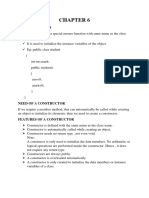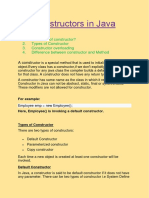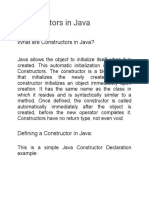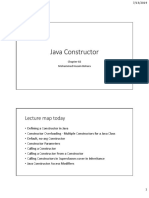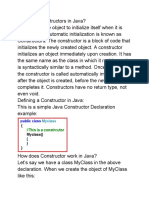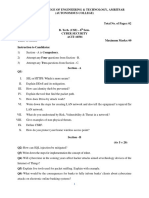0% found this document useful (0 votes)
47 views12 pagesConstructors 1
A constructor is a special method in a class that is used to initialize objects of that class. Constructors have the same name as the class, have no return type, and are automatically called when an object is created. There are different types of constructors including default, parameterized, and copy constructors. Constructors allow objects to be created and initialized with initial values.
Uploaded by
sheelaCopyright
© © All Rights Reserved
We take content rights seriously. If you suspect this is your content, claim it here.
Available Formats
Download as PDF, TXT or read online on Scribd
0% found this document useful (0 votes)
47 views12 pagesConstructors 1
A constructor is a special method in a class that is used to initialize objects of that class. Constructors have the same name as the class, have no return type, and are automatically called when an object is created. There are different types of constructors including default, parameterized, and copy constructors. Constructors allow objects to be created and initialized with initial values.
Uploaded by
sheelaCopyright
© © All Rights Reserved
We take content rights seriously. If you suspect this is your content, claim it here.
Available Formats
Download as PDF, TXT or read online on Scribd
/ 12




















